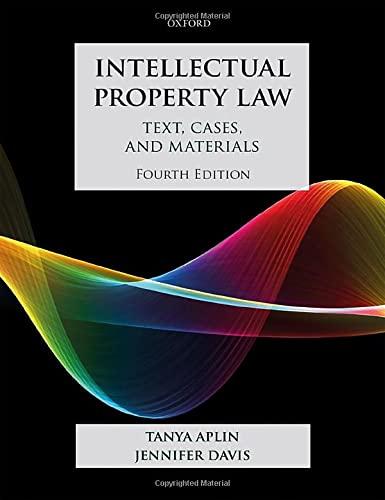Question
Question 1 : Homer, 86, and Helen, 88, live in a home they bought 30 years ago. They also own a two-acre meadow adjacent to
Question 1: Homer, 86, and Helen, 88, live in a home they bought 30 years ago. They also own a two-acre meadow adjacent to their home. They have long been retired; he was a plumber, while she worked for the Department of Veterans' Affairs. To all appearances they are able to take care of themselves: Homer often walks around the neighborhood, feeding the birds, while Helen maintains the checkbook (although she only enters the check amounts and doesn't keep a running balance). However, their next door neighbor Donna checks in on them daily and helps them figure out cable TV boxes, how to turn off the hazard lights in their new jeep, and understanding what to do about those "free checks" that keep coming in the mail. They also became friends with other neighbors, Cathy and Joe. Cathy is a realtor, and Joe is a mortgage lender. When they moved into the neighborhood 7 years ago, they told Homer and Helen that they would be interested in buying the meadow if Homer and Helen ever wanted to sell it. Recently, Homer knocked on Cathy and Joe's door and said he and Helen wanted to sell the meadow. When asked for the price, he said "$22,000". Cathy and Joe wrote up a formal offer to purchase the property for that amount, and it was accepted by Homer and Helen. Homer and Helen did not have a realtor or legal counsel advising them.
According to the property tax statement (which frequently undervalues property), the property was worth $220,400. At the closing, Helen complained the price was too low, and the escrow agent left. Two days later, the buyers called to reschedule the closing, saying that all differences had been resolved, and the closing was rescheduled. This time both Homer and Helen signed, and title to the property was transferred to Cathy and Joe.
Not long thereafter, when neighbor Donna heard about the transaction from Homer and Helen, she brought her own realtor in to examine the transaction, and convinced Homer and Helen to see a real estate attorney. Prior to that meeting, Homer looked at his bank statement. He stated that he was surprised to see only a $22,000 deposit instead of a $220,000 deposit.
Can Homer and Helen rescind this contract? Discuss.
Question 2: Maria and Ted went to a local jewelry store to buy something for Maria to mark their 24thwedding anniversary. In the display case they saw a necklace featuring a mix of beads in pinks, yellows, greens, oranges, and browns, with a tag stating "Turquoise necklace - $150". They purchased the necklace and were issued a receipt which stated "No Refunds" on the bottom of the slip. They showed the necklace to a neighbor the next day. The neighbor, who was a member of a rock club, laughed and said, "That's not turquoise, and it's not worth $150!"
They returned to the store the next day, but the store owner refused to give them a refund, pointing to the "No Refunds" statement on the bottom of the receipt and insisting that the necklace was in fact turquoise.
Maria and Ted took the necklace to a gemologist certified by the Gemological Institute of American (and a master gemologist appraiser with the American Society of Appraisers). The appraiser told them that the necklace might contain some trace amounts of turquoise in it, but it clearly did not consist of turquoise stones.
An expert hired by the seller doubted at first that the necklace contained any turquoise, but changed his mind after testing the material by cutting a couple of the beads in two; that expert said, "It cut like turquoise and smelled like stabilized turquoise. I'm not thrilled about the material - it's highly treated turquoise. But it's turquoise." He also said, "If there's some turquoise in a strand, industry standard says it's fair to call the necklace turquoise."
Turquoise may consist of stones, or of residue from mining and processing turquoise stones. In the industry, materials known as "natural" or "stabilized" turquoise is made by adding clear resin (but no dye) to the residue to form beads consisting primarily of turquoise residue; alternatively materials known as "reconstituted" turquoise may contain resin, dye, and turquoise residue.
Eventually, the seller stated that he would be willing to give a refund of the purchase price, notwithstanding the "No Refunds" statement on the receipt, "if the buyers are nice".
Can Maria and Ted rescind the contract for the purchase of the necklace, even if they are not nice? Discuss.
Step by Step Solution
There are 3 Steps involved in it
Step: 1

Get Instant Access to Expert-Tailored Solutions
See step-by-step solutions with expert insights and AI powered tools for academic success
Step: 2

Step: 3

Ace Your Homework with AI
Get the answers you need in no time with our AI-driven, step-by-step assistance
Get Started


